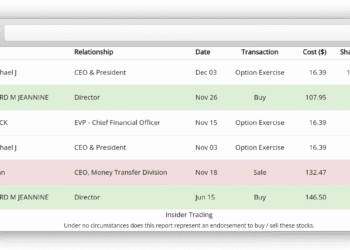The health data tracking system introduced by the Trump administration represents a transformative initiative designed to enhance patient access to important health records. By collaborating with Big Tech giants like Amazon, Google, and Apple, this new system aims to streamline how individuals track and manage their medical information. Although it promises to modernize healthcare technology, offering patients greater control and connectivity, concerns regarding patient privacy health data have also surfaced. Critics argue that such collaborations create potential vulnerabilities, opening an ‘open door’ for sensitive data exploitation. As this system prepares to launch in 2026, the ongoing discussions about secure medical records and ethical data use remain crucial to ensuring patient safety and trust in this evolving landscape.
Introducing a revolutionary framework for managing health information, the upcoming patient data monitoring system focuses on empowering individuals to oversee their medical records efficiently. With an emphasis on technology integration, this initiative will enhance the way healthcare providers access and share vital patient information. Furthermore, discussions around digital health records are gaining traction as society confronts the balance between innovation and patient safety. As industry leaders from major technology corporations collaborate with governmental bodies, the spotlight is on securing personal medical data while optimizing healthcare services. It is essential for stakeholders to address the implications of such advancements, particularly in relation to health information privacy and the ethical use of personal data.
The Future of Health Data Tracking Systems
The landscape of healthcare is rapidly evolving with the advent of new health data tracking systems. The collaboration between the Trump administration and Big Tech aims to usher in a new era for patient engagement and data accessibility. By enabling patients to manage their health information seamlessly, this initiative could significantly enhance the overall efficiency of healthcare services. This innovative approach is expected to bridge the gap between medical practitioners and patients, allowing for timely interventions and a more comprehensive view of patient health.
However, the introduction of such systems raises important questions about data management and privacy. While the system is designed to improve patient access and usability, critics warn that such integrations with Big Tech could lead to potential misuse of sensitive health information. Safeguarding patient privacy and ensuring the security of medical records becomes a paramount concern as we navigate through these new digital avenues.
Frequently Asked Questions
What is the health data tracking system proposed by the Trump Administration?
The health data tracking system proposed by the Trump Administration aims to streamline patient access to health records, allowing for easier tracking and sharing of medical data among doctors, hospital systems, and health apps. This initiative collaborates with Big Tech companies like Amazon, Google, and Apple, intending to enhance patient engagement and improve healthcare technology.
How does patient privacy factor into the new health data tracking system?
Patient privacy is a significant concern regarding the new health data tracking system. While the Trump Administration asserts that the system will be strictly opt-in and will not create a centralized government database, critics worry about the potential use and monetization of sensitive health information by Big Tech companies involved in the system.
What role does Big Tech play in the health data tracking system?
In the health data tracking system, Big Tech companies like Amazon, Google, and Apple are pivotal in providing technological infrastructure and data interoperability. Their involvement is expected to enhance the efficiency of healthcare technology and facilitate the seamless sharing of secure medical records among healthcare providers and patients.
What assurances have been given regarding the security of medical records in the health data tracking system?
The Centers for Medicare and Medicaid Services, which will maintain the health data tracking system, has assured patients that their medical records and health data will be kept secure. However, critics emphasize the importance of transparent safeguards to ensure patient privacy and prevent unauthorized access.
When is the health data tracking system set to launch and what are its expected benefits?
The health data tracking system is scheduled to launch in the first quarter of 2026. Its expected benefits include providing a more comprehensive view of a patient’s health, enhancing care coordination, and improving the usability of health data for better patient outcomes through advanced healthcare technology.
What are the potential risks associated with the health data tracking system?
Potential risks of the health data tracking system include concerns over patient privacy, data security, and the possibility of sensitive health information being used or monetized without proper consent. Advocacy groups emphasize the need for strict regulations to safeguard personal health data against misuse.
How does this health data tracking initiative compare to previous proposals?
This health data tracking initiative builds on an earlier proposal by the Trump Administration in 2018 that did not fully materialize. The current plan is more developed, involving partnerships with numerous healthcare and Big Tech firms, and seeks a more integrated approach to patient data management in healthcare technology.
What steps should patients take to protect their privacy when using health data tracking systems?
Patients should carefully review the privacy policies of any healthcare apps or systems they engage with, understand their rights regarding data sharing, and opt-in only when they are comfortable. Additionally, monitoring the use of their data and advocating for clear privacy protections is essential to safeguard their medical information.
| Key Point | Description |
|---|---|
| Health Data Tracking System Overview | A proposed system by the Trump administration aiming to modernize patient access to health records. |
| Collaboration With Big Tech | Involves major companies like Amazon, Google, and Apple to aggregate health data. |
| Opt-In Policy | Patients must consent to share their medical records, ensuring a level of control over data. |
| Security Concerns | Critics are wary of potential data privacy issues and misuse of sensitive health information. |
| Timeline | The system is set to launch in the first quarter of 2026, with 60 companies participating. |
| Previous Attempts | A similar health tracking system proposal was made in 2018, but it did not materialize. |
| Impact on Healthcare | The initiative is seen as a significant step for technology integration in healthcare, potentially improving patient care. |
Summary
The health data tracking system is a new initiative by the Trump administration designed to enhance patient access to their health records while ensuring data security through an opt-in policy. This collaboration with technology giants aims to create a more efficient healthcare network. Critics, however, highlight the risks to privacy, calling for stringent safeguards to protect sensitive information. As the launch date approaches, the public will be watching closely to see how this system balances innovation with ethical considerations.













